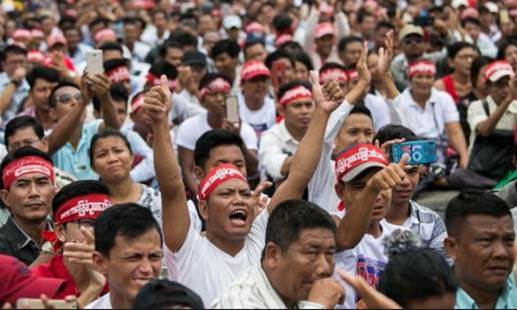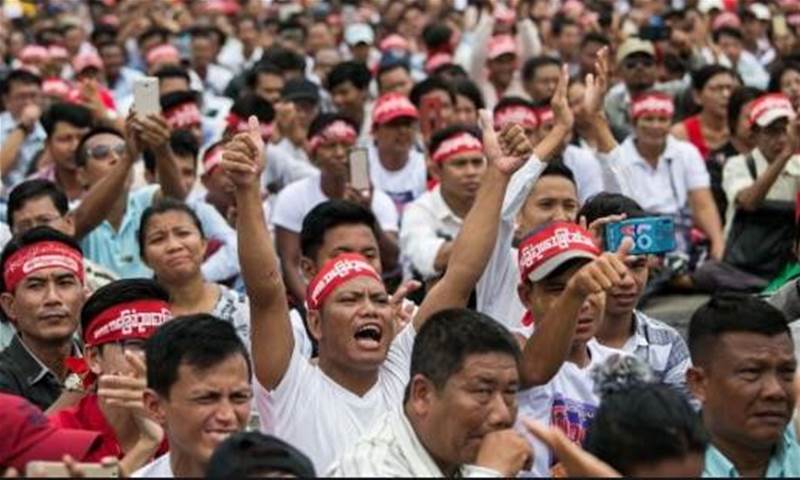Myanmar's military rulers have shut down the country's internet as thousands of people continued to protest this week against a coup that saw the military seize power on February 1.
Telcos and internet service providers were forced to shut down mobile and fixed line services.
The internet shutdown happened hours after the military blocked access to Twitter and Instagram to stop people mobilising for protests. Facebook had been banned earlier.
A near-total internet blackout is in effect with connectivity falling to 16% of ordinary levels, said monitoring group NetBlocks Internet Observatory.
Myanmar internet infrastructure is still relatively young – the first connections were established in 2000 and the telecom market was only opened up to global internet providers in 2013.
Most internet providers are based in the major cities of Yangon and Mandalay. The biggest service providers are GTMH Telecom, True IDC, NTT, True Internet, and Myint & Associates.

Shutdown seen as a violation of human rights
“Internet service providers and all businesses operating in the telecom sector in Myanmar must actively push back against internet shutdown orders,” petitioned Felicia Anthonio, a campaigner with non-profit and digital rights group Access Now. “They have a responsibility to uphold human rights, not create a space where they can be abused.”
In similar fashion, Amnesty International’s Deputy Regional Director for Campaigns, Ming Yu Hah, calls the decision to shut down the internet amidst the pandemic and humanitarian crisis as a “heinous and reckless decision.”
In 2019, the Myanmar authorities forced an internet shutdown from June to August, the longest imposed by a national government, during a conflict between the Myanmar military and Arakan Army in Rakhine State.
In addition to the mobile internet, the Myanmar authorities have ordered the blocking of websites of independent and ethnic news media, among many other sites.
Shutdowns have denied the local population critical access to information, particularly about COVID-19, and poses real dangers to citizens at risks from the pandemic. There are also political, economic and social costs. Internet restrictions have also made it more difficult for the news media to safely gather and disseminate information.
Last year, there were 93 major internet shutdowns in 21 countries, according to a report by Top10VPN, a U.K.-based digital privacy and security research group. Shutdowns can range from all-encompassing internet blackouts to blocking social media platforms or severely throttling internet speeds, the report said.
Top10VPN reported that in Uganda, citizens were unable to use Facebook, Twitter and other social media for weeks after a 2020 election. In Ethiopia's northern Tigray region, the internet has been down for months amid a wider conflict. In Belarus, the internet went down for 61 hours after an August presidential election claimed to be rigged in favour of the incumbent president Alexander Lukashenko, marking Europe's first government enforced internet blackout.










